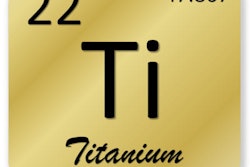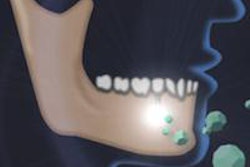Spanish researchers have developed implants coated with biodegradable materials for people with bone deficits.
The elderly, people with osteoporosis, smokers, diabetics, or people who have had cancer are sometimes not eligible to receive dental implants because their bones are unable to correctly integrate the prostheses.
Researchers at the say the new material -- titanium radicle -- could increase the success rate of implants by enhancing biocompatibility and reduce the time of osseointegration or bone integration.
For this project, dubbed Soldent, researchers at the Universitat Jaume I in Castellón and the University of the Basque Country are working with the company Ilerimplant to develop and test a prototype.
"It consists on covering the implant with a biodegradable coating that, upon contact with the bone, dissolves, and during this degradation process is able to release silicon compounds and other bioactive molecules that induce bone generation," explained Julio José Suay, PhD, coordinator of the polymers and advanced materials research group at Universitat Jaume I, in a press release.
After in vitro testing with cell cultures of the different biomaterials, they proceeded to the live animal evaluation, until achieving the prototype with the best results. The next phase will be a clinical evaluation, in order to obtain the marketable sanitary product within two or three years.



















